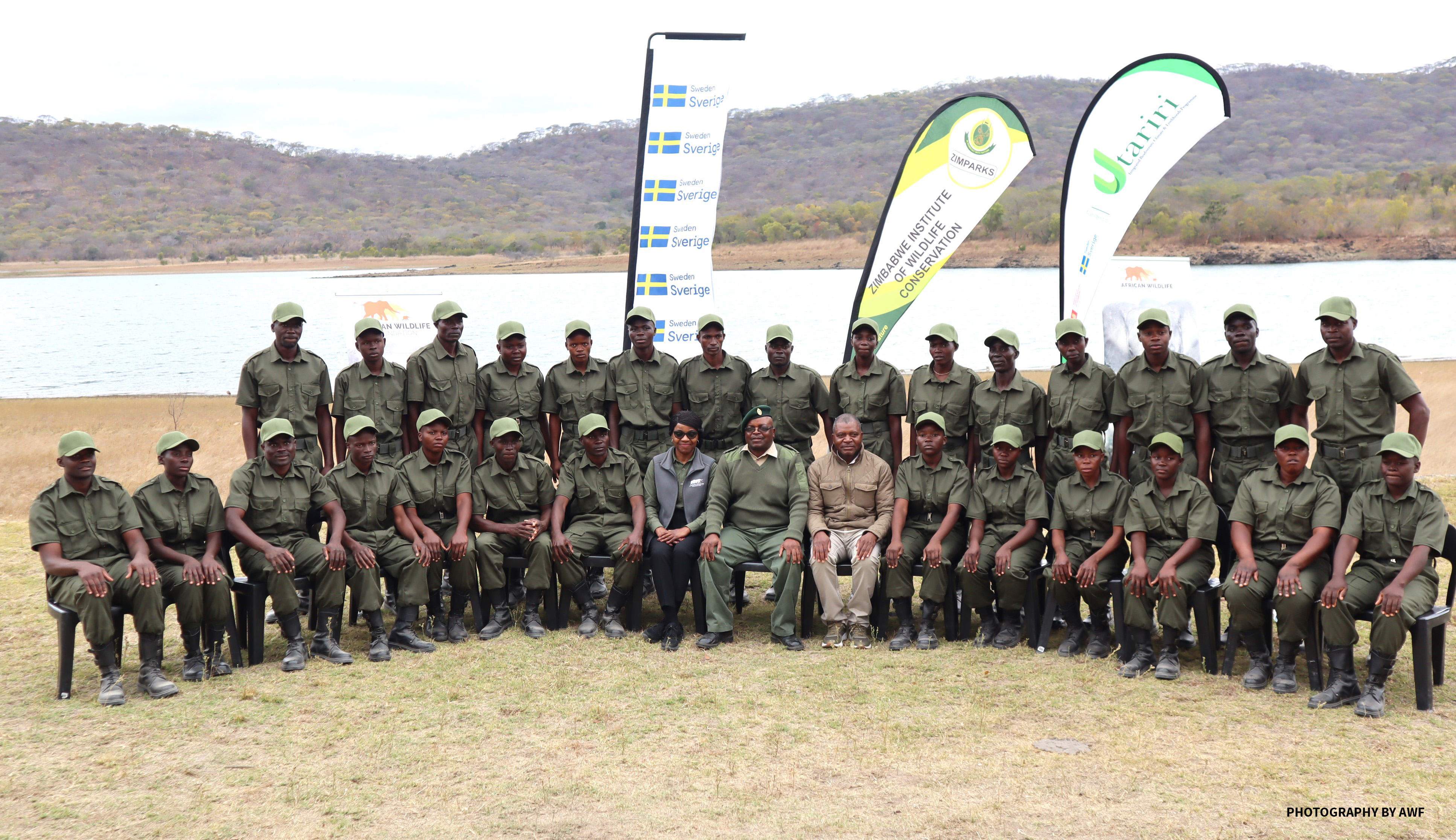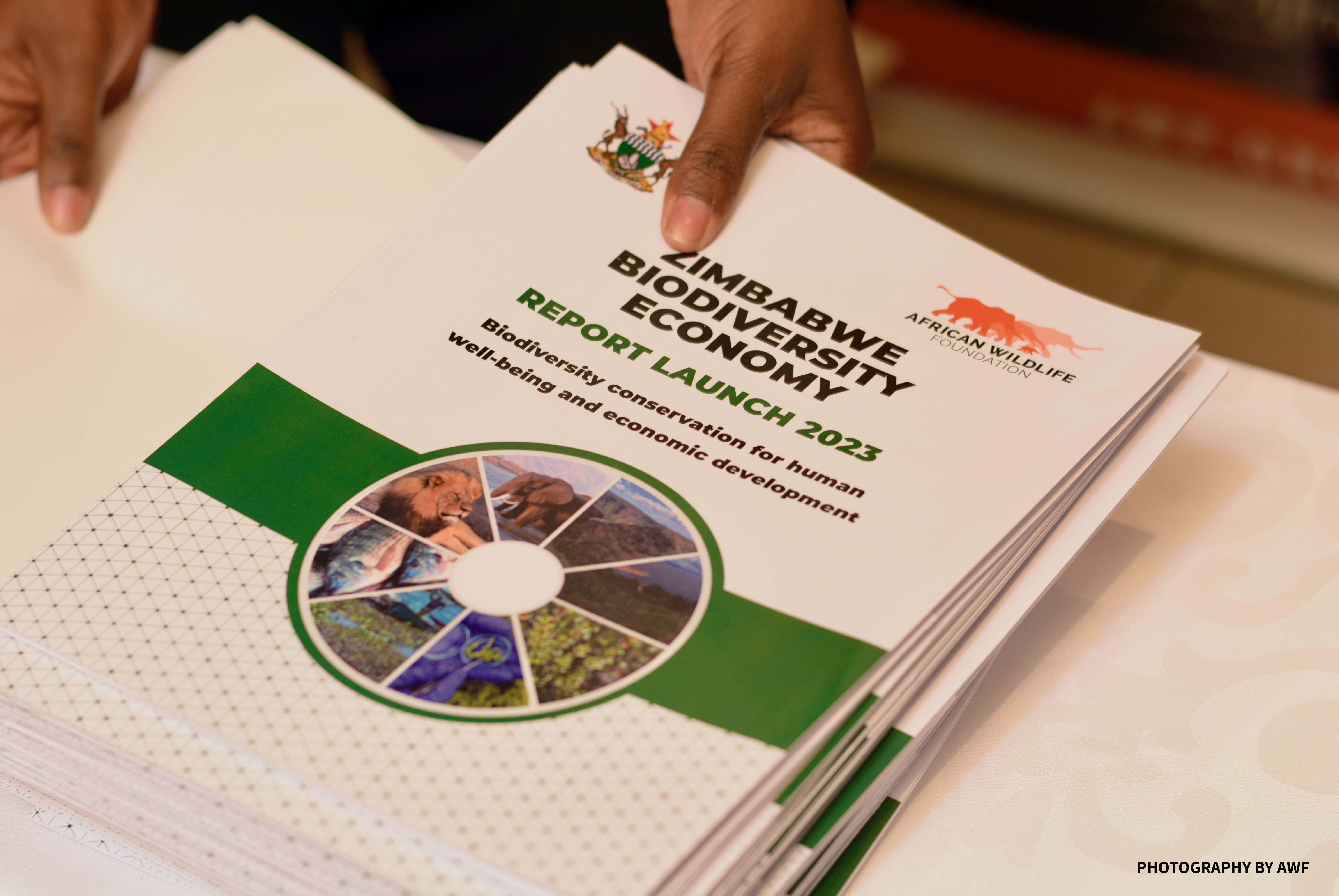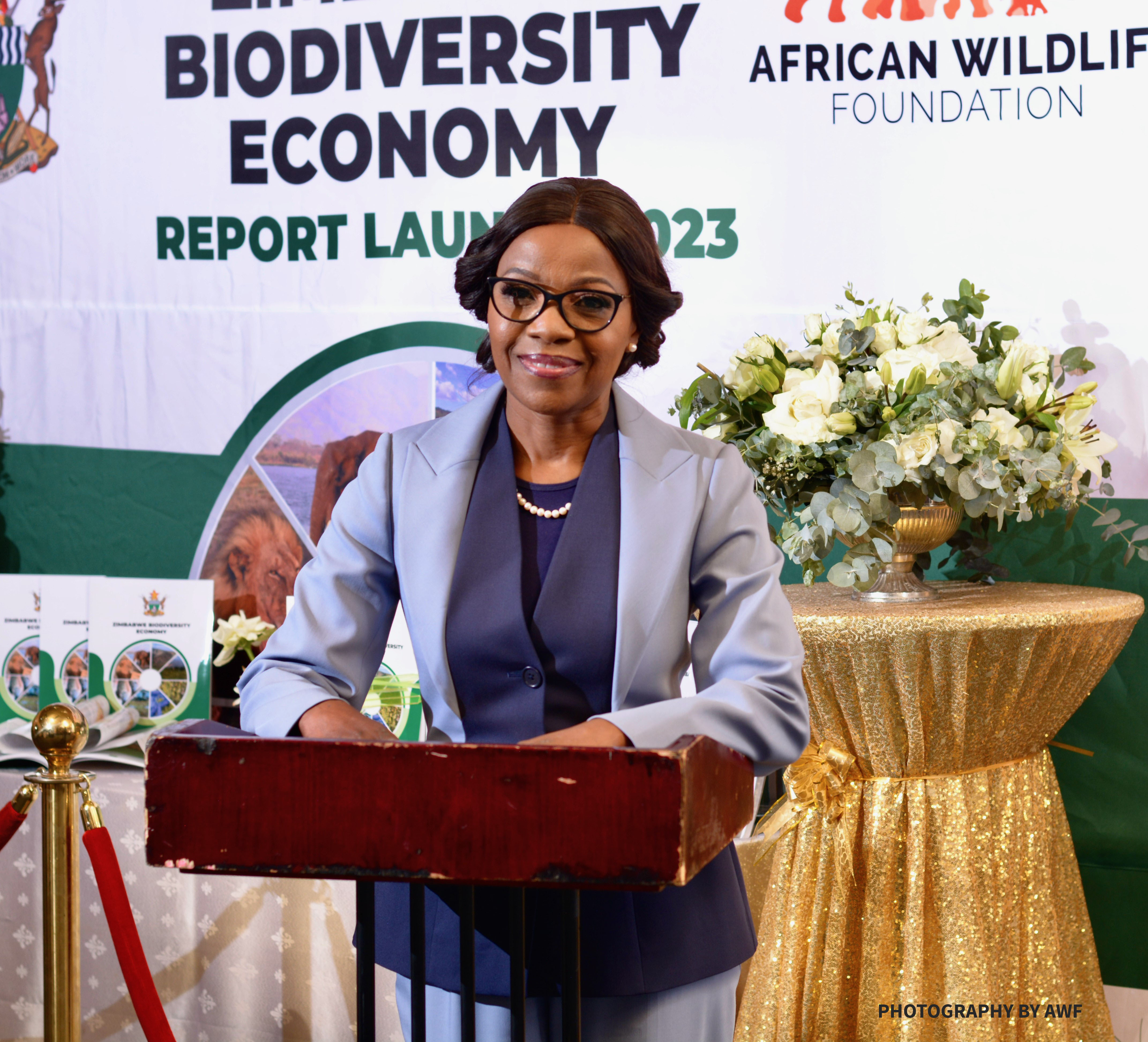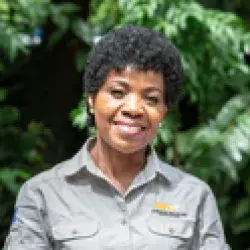AWF Zimbabwe Journey Motif: 2023 Reflections and 2024 Forecast Outlook

As the sun dips below the horizon, casting long shadows on the eventful year 2023, the African Wildlife Foundation (AWF) Zimbabwe office is filled with the insatiable desire to reflect on major milestones registered. Along its journey motif this year, AWF, in partnership with the government of Zimbabwe, launched the groundbreaking Zimbabwe Biodiversity Economy (ZBE) Report that provides a framework set to help the country mainstream the value and contribution of nature into development planning, decision-making, public and private sector investment, and policy development. This major milestone singled out is among many successes that saw AWF impacting positively in communal areas through people-centric interventions and in protected areas where significant strides were made to ensure wildlife thrives. To get nitty-gritty details on AWF Zimbabwe’s success, challenges encountered, and the 2024 forecast, we interviewed AWF Zimbabwe Country Director Olivia Mufute.
Reflecting on 2023, what achievement are you most proud of?

There are four notable achievements that I am proud of. Foremost is the launch of the Zimbabwe Biodiversity Economy Report (ZBE) by the Ministry of Environment, Climate and Wildlife. The second achievement is the training of 43 local community scouts from Mbire and Muzarabani Districts. Lastly, I am also proud of the infrastructural developments we finalized in the protected areas, particularly the Mukanga office, a very remote station for the Zimbabwe Parks and Wildlife Management Authority (Zimparks) in the Middle Zambezi Valley. This also came with water infrastructure and a water purification system in a place that has not had any portable water in the last 30 years or even more. Coupled with this is the support we have given to the parks in terms of equipment, radio digitalization, as well as the provision of a new patrol boat for Mana Pools.
Can you share specific examples of successful projects or initiatives that AWF undertook in your country in 2023? Are there any specific examples of working with communities, caring for wildlife, or leading for wildlife?
I will start with leading for wildlife, which has been a major success story for Zimbabwe, in terms of activities and deliverables under goal one on African leadership. Launching the ZBE report was a milestone in leading for wildlife not only at a local level but also at an international level. We developed knowledge pieces targeted at policymakers globally. In January 2024, as part of its launch, this ZBE report will be presented at the US Embassy of Zimbabwe to bilateral donors, the World Bank, GEF, the US Fish and Wildlife Service, and other potential partners, supporters, and donors.
We were also very successful in engaging the private sector. We attended and make a presentation on conservation at the CEO Africa Roundtable. The event was graced by the head of state, captains of industry as business leaders. Through our presentation, we aimed to raise awareness of biodiversity conservation for people who are not very conversant with conservation issues.
Under caring for wildlife, I would like to single out the training of the community scouts from Mbire and Muzarabani. We trained 28 young people with an almost 50:50 ratio in terms of gender balance. It was exciting that a 19-year-old female was nominated as the best student at this training.
At a policy level, we contributed to the Parks and Wildlife Act, the Agro Biodiversity Policy, and the National Animal Genetic Resources, Strategies and Action Plan. We also chaired committees on the Elephant Management Plan for the Mid Zambezi region.
Every journey has its challenges. What notable challenges did AWF Zimbabwe face in 2023, and how did the team navigate through them?
I think challenges also present opportunities and points from which we can learn. We faced challenges related to delays in project implementation as this was a national election year. . In the buildup to the elections, we found some of our work plans being affected as the campaigning and other election-related activities took precedence, especially for the government, which is a key partner. This particularly affected community work, for example, there were instances where we had to wait to train councilors after the election process. There was also a cholera outbreak in the districts where we operate, which slowed down program implementation as we had to abide by the strict health regulations from the Ministry of Health. Other delays were operations in nature but we working with our leadership we found solutions that moved the process along.
As the Country Director, what excites you the most about the upcoming year? Are there any new partnerships, innovative projects, or developments you particularly look forward to in 2024?

2024 has a lot of positives that are excited about. We just received new funding that will be instrumental in scaling up our projects in the Mid Zambezi Valley, particularly in the protected areas as well as community areas around Hurungwe.
The Lower Zambezi Mana Pools Transfrontier Conservation Area agreement was signed toestablish the TFCA between Zimbabwe and Zambia. The second major development is signing the Greater Mana Pools Co-Managenent Ecosystem Agreement between Zimparks and the Peace Parks Foundation. We take this very positively as AWF because we are the main NGO that has been working on implementing programs in that landscape. We see opportunities for partnership and new funding, which this new partner is going to bring because of their track record in other countries where they have worked.
I see opportunities in the sector of green bonds, and there is talk of the possibility of wildlife bonds and whether AWF can also participate and contribute to developing the relevant policy framework.
As the year 2023 ends, AWF Zimbabwe is optimistic that it will continue making long-lasting impact in communal and protected areas in Zimbabwe. Our hopes are pinned on getting continuous funding streams critical for species recovery, climate adaptation, mitigation, and resilience in our priority landscapes. This will harmonize with our aspirations for leading, caring, and living with wildlife.
